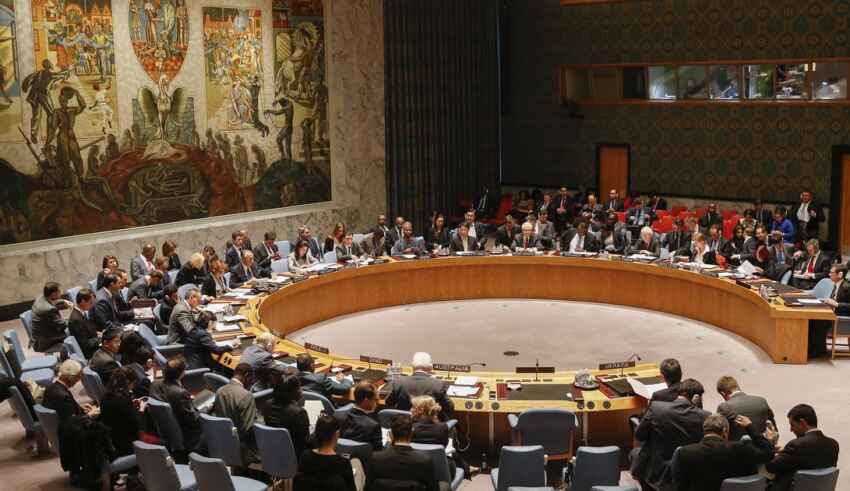
According to a report released by the UN Office for the Coordination of Humanitarian Affairs (OCHA), the new year found 4.1 million people in north-west Syria, out of which 80% are women and children, in the need of humanitarian aid to fulfill their basic needs. A month earlier, the UN OCHA estimated that the number of aid recipients in Syria is about to reach 15.3 million, the highest number since the conflict started in 2014. In addition to the food and water insecurity that the Syrians are dealing with, the cholera outbreak reported in September 2022 increased the necessity of medical supplies. While the situation in Syria demands an urgent solution, the United Nations Security Council unanimously decided to extend the cross-border humanitarian operations into Syria for another 6 months by adopting Resolution 2672 (2023).
But what does the renewal of such a mandate means for the fate of millions of Syrians and how such an issue has been highly politicized?
Aiming to address the refugee crisis caused by the Syrian civil war that began in 2011, the Security Council adopted, in 2014, Resolution 2165 on the humanitarian emergency in Syria. The Resolution authorized the UN to establish four crossing borders, namely Bab al-Salam and Bab al-Hawa on the Turkish borders, al-Ram- tha on the Jordanian borders, and al-Ya’rubiya on the Iraqi borders. The UNSC mandate, a seemingly beneficial move for the situation in Syria, made a purely humanitarian cause subject to political interests.
Since the relief aid to Syria became a matter of the Security Council, Russia, as one of the permanent members in the Council with the power to veto, and a political and military supporter of the Syrian regime, has exploited this opportunity to advance its political interests. In a period of 9 years, during which the Security Council has adopted 11 Resolutions on cross-border humanitarian assistance in Syria, Russia has used four times its right to veto reducing the crossing borders to two (Bab al-Salam and Bab al-Hawa) and then to one (Bab al-Hawa). In addition, the Russian Federation introduced the concept of cross-line aid delivery, redirecting the routes for aid delivery to pass through the Syrian regime’s territories. Consequently, not only was the assistance reduced, as the entrance points were limited, but also the Syrian authorities control the whole process, seizing big amounts of the provided aid.
Following the adoption of Resolution 2672 (2023), which renewed the Security Council’s previous authorization to aid operations in Syria, the main question that arises is whether the delivery of UN humanitarian assistance to Syria should fall under the authorization of the Security Council, a highly politicized body.
Concerning the Security council’s permission for the delivery of humanitarian aid to Syrians, several reasons have been elaborated that a decision of such importance should not fall under the council’s authorization. The basic issue is that the principle of territorial sovereignty renders as a violation of international law any intervention into the state’s territory without its consent. In other words, the concept of sovereignty provides States with the right to conduct their affairs without external interference. However, it is highly questionable whether the delivery of humanitarian assistance by unarmed UN aid workers can be classified as an intervention or whether the protection of the fundamental human rights of civilians is an exclusively domestic matter. In addition, it has been supported that in the case of Syria, the immense necessity of providing humanitarian relief to the people, which is an interest of the whole international community, precludes any wrongfulness of the act.
The politicization of important humanitarian issues, like the cross-border relief aid to Syria, threatens the survival of millions of people that deal with the reality of insecurity every day. The abstention of the Security Council from such decisions is necessary, while a more dependent and impartial body, like the UN General Assembly, needs to take further action.
By The European Institute for International Law and International Relations.















